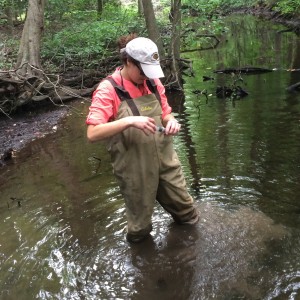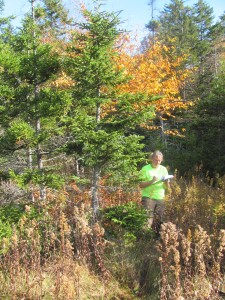Collaborators: Watts Branch Watershed Alliance, Friends of Sligo Creek, Blue Water Baltimore
When people think bacteria, they often think disease. But in reality, pathogenic bacteria are a very small fraction of all bacteria. Bacteria are everywhere, and though small in size, these microscopic organisms are highly complex and play important roles in controlling global nutrient cycles. In collaboration with local citizen scientists, we are examining bacterial communities across streams in Maryland by identifying what bacteria are present and in what streams.
This information could be a useful supplement to existing measures of watershed health. Traditionally, managers have relied for this purpose on data about the presence and diversity of fish and benthic macroinvertebrates, such as mayflies, leeches, and worms. While these indices are useful, so are data about bacterial communities present in an ecosystem. Bacteria are an extremely diverse group of organisms, and changes in bacterial community assemblages may reflect changes in ecosystem health. This information may be useful in assessing the health of streams across Maryland.
What is citizen science?
“Projects in which volunteers partner with scientists to answer real-world questions.” – Cornell University
“Scientific work undertaken by members of the general public, often in collaboration with or under the direction of professional scientists and scientific institutions.” – Oxford English Dictionary, June 2014
Objectives of our citizen science program:
1. Engage interested citizens on the importance of microbes in healthy aquatic ecosystems.
2. Collaborate with citizens to help address the biological impacts of different aquatic stressors within local watersheds.
3. Share the knowledge and application of modern DNA sequencing technologies, and how they can be used in environmental monitoring.
June 2015: All samples submitted
Sept 2015: DNA sequencing
Oct 2015: Preliminary data and analysis distributed to groups
Nov 13, 2015: MWMC Conference (public presentation and workshop)
Protocols:
Sediment and water collection protocols
MWMC 20th Annual Conference 2014 Workshop #1
Relevant Links:
Maryland Biological Stream Survey
Maryland Water Monitoring Council
Introducing DNA Sequencing by Synthesis
Questions?
Sarah Laperriere
slaperriere@umces.edu
410-221-8278


